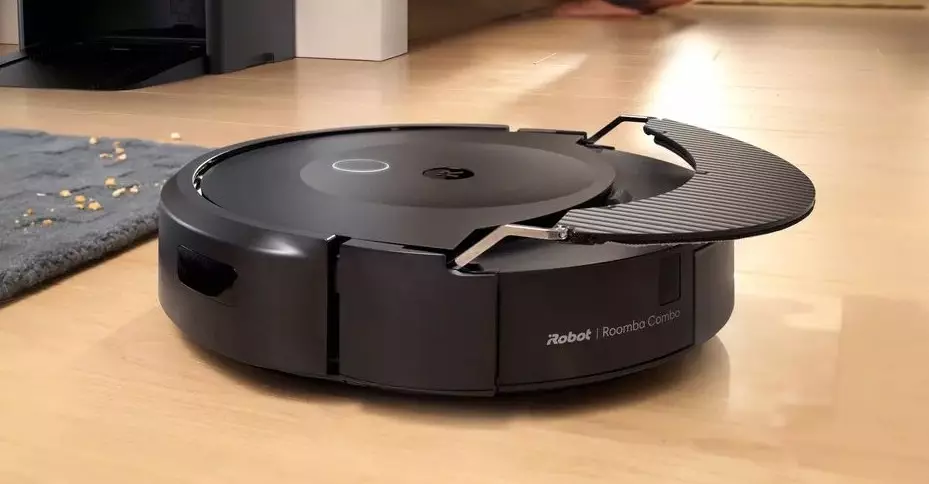With the recent launch of Apple’s iOS 18.4, a fresh wave of innovation has cascaded through the smart home sector, particularly for robot vacuum enthusiasts. The integration of the Matter protocol—a universal standard aimed at unifying smart home devices—marks a significant leap forward for users looking to streamline their automated cleaning solutions. The update introduces enhanced functionality by allowing users to control their robot vacuums seamlessly within the Apple Home app, making it an exciting era for tech-savvy homeowners.
Bringing Automation to Life
The infusion of Matter support into popular vacuum brands like Roborock, iRobot, and Ecovacs is a game changer. Roborock, in particular, boasts an impressive array of devices now compatible with Apple’s ecosystem. Models like the S8 MaxV Ultra and the Saros Z70 will benefit from a firmware update scheduled for early April, offering users the ability to add their devices to customized home automations and scenes. This means that cleaning routines can now be effortlessly triggered by schedules or even motion sensors. Just imagine a scenario where your robot initiates its cleaning cycle the moment you leave for work. The convenience is profound, and it establishes a new normal for home maintenance.
Bridging the Gap: Cross-Platform Compatibility
One of the remarkable aspects of the Matter initiative is its commitment to platform-agnosticism, which was a significant motivation behind its development. As Apple’s latest updates roll out, compatibility will extend beyond just iOS devices. Roborock’s improvements will not only cater to Apple Home but will also enhance connectivity with platforms like Google Home and Amazon Alexa. This cross-compatibility encourages users to explore various smart home ecosystems without being confined to a single brand. Roborock’s diverse lineup is further bolstered by its promise of rolling out additional Matter support for models like the Qrevo Slim in the coming weeks, ensuring that a broader range of customers can enjoy these benefits.
iRobot and Ecovacs Join the Revolution
iRobot is also stepping into this promising landscape. Their Roomba Combo 10 Max, equipped for matter compatibility, is poised to offer an engaging user experience with features that allow for room-specific cleanings through the Home app or Siri voice commands. This attention to user experience marks a pivotal shift in how consumers interact with technology; the days of fumbling through separate apps to control different devices are waning. Furthermore, Ecovacs, known for its innovative Deebot models, has announced a phased rollout of updates for its vacuums. This demonstrates industry-wide collaboration toward making homes smarter and more intuitive.
The Limitations of Matter and Future Prospects
While the advancements associated with iOS 18.4 are noteworthy, it’s essential to acknowledge the limitations of the Matter protocol. The integration focuses primarily on basic functionalities such as power control, switching between vacuuming and mopping modes, and room selection. Advanced features like mapping and configuring exclusion zones remain domain-specific, tethered to the proprietary apps of the brands. This might leave some users longing for a more comprehensive control experience, as convenience meets limitation.
This bridge between fundamental controls and advanced functionalities teeters on the future of user expectations. As consumers become accustomed to seamless automation, the appetite for enhanced capabilities will be insatiable, prompting manufacturers to innovate further. More advanced functionalities will likely emerge as competition heats up in the robot vacuum arena, with companies seeking to differentiate themselves beyond basic compliance with universal standards.
The Road Ahead: A New Era of Convenience
The launch of iOS 18.4 isn’t just another software update; it’s a herald of a future where smart home technology becomes more cohesive and integrated. As brands align their devices with Matter, users stand to gain unprecedented levels of convenience, control, and customization. Home cleaning routines will evolve from mundane chores into automated tasks that enhance quality of life.
Moreover, as we stand at the cusp of this exciting technological frontier, the implications for consumer trust, data privacy, and user autonomy cannot be overlooked. As brands forge partnerships and innovate, transparency in functionality and data security will become paramount for maintaining user confidence in these increasingly interconnected ecosystems. The dawn of an integrated smart home landscape is upon us, and it is poised to redefine our interaction with technology.

